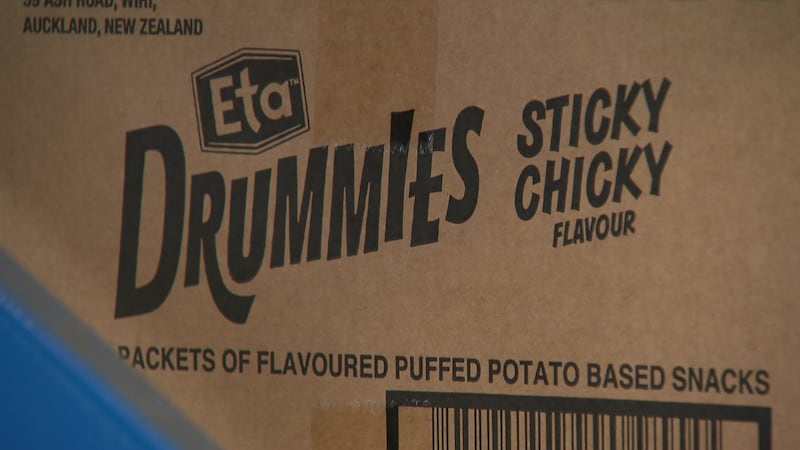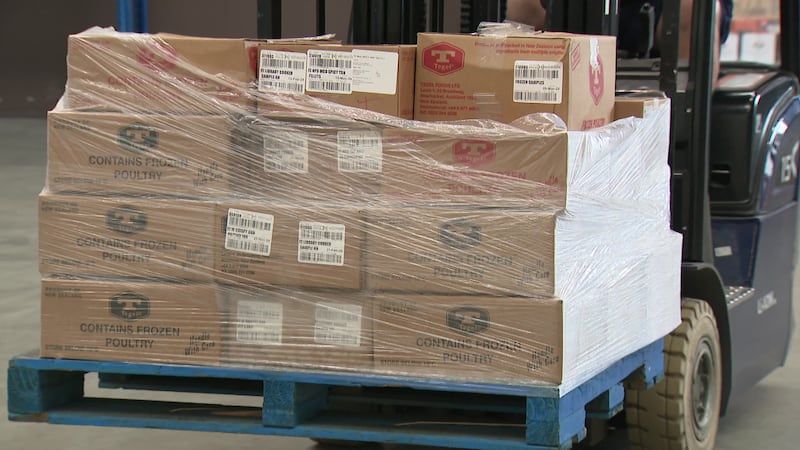Struggles like the cost-of-living crisis have led many whānau to go without around the country.
According to the latest data release from the New Zealand Food Network, their Food Hubs are catering to over half a million people a month, however supply is not keeping up with demand.
One of those food hubs based in Hawke’s Bay, Mangaroa Marae Food Hub, is aware of the rising demand and is trying to manage what they have.

CEO of the food hub, Pare Morrell says statistics are shocking.
“We have one in five children that live without access to food. That’s really alarming, one in five children. When you look at it there’s 103,000 tonnes of waste food being generated to landfill. There’s something wrong with that picture.”
Families going without
The New Zealand Food Network (NZFN), founded in 2020 to support whānau facing food insecurity, saw an urgent surge in demand with the onset of Covid-19.
Supplied with surplus food from major corporations such as Fonterra, Tegel, and Sanitarium, NZFN distributes essential kai to 64 food hubs nationwide.
Between July and December 2024 alone, the network delivered over 13 million kilograms of food—a significant increase in distribution.

Despite this, NZFN says it is struggling to meet soaring demand, particularly in regional areas. CEO Gavin Findlay describes the situation as heartbreaking, as more families are forced to go without due to rising living costs.
“Circumstances dictate that you don’t have enough money to do everything else in your life, food is just one of those things that, crazily, people do without. We can’t do without. It’s a real tragedy that it’s happening to more and more kiwis.”
Māori Food Hubs
The Mangaroa Marae Food Hub is one of three in the Hawke’s Bay region, that aim to supply whānau with sufficient and healthy kai that they otherwise may not have access to.
Established in 2016, the Mangaroa marae food hub aimed at providing school lunches for schools and kōhanga in Hastings. Furthermore, during the aftermath of Cyclone Gabrielle, they were among the community, delivering food and supplies to all of those affected.

The food hub relies on volunteers who help repackage and deliver food to many whānau in the district.
However, Morrell says she is distressed hearing the same reason as to why whānau are seeking support.
“As part of the kōrero when people come in to pick up is the rising cost of living. That’s basically why they’re coming in to seek help.”
Findlay adds saying he is grateful for the support of Māori initiatives in the regions, which gives them an insight into the struggles on the ground.
“The ability for local iwi to understand their community is something that we will never get. We don’t have that connection, and we really rely on and value the ability for local organisations to know their communities to get it out there. Otherwise, we’re just a big distribution company, where do we go from here,” Findlay says.
Cost of living
According to Stats NZ, the cost of living has risen by 2.4% over the past year, adding pressure on whānau across various socio-economic backgrounds.
A recent survey by the New Zealand Food Network (NZFN) found that the main reasons people seek support from Food Hubs have remained consistent. The rising cost of living was the most commonly cited factor (93%), followed by low household or individual income due to low-paying jobs (67%), unemployment (59%), and unexpected bills or expenses (51%).

Findlay says NZFN needs further support to ensure whānau aren’t put in situations where food is up for question.
“[If] the government can continue to support the sector, that business’ continue supporting the sector and to the community, we’re here to support you for what you need to do with your vulnerable whānau.”
Morrell further emphasised,
“Getting behind the New Zealand Food Network, supporting them. Supporting the local pātaka kai and organisations like Mangaroa marae and just gain more of an understanding and the struggles that families are going through.”


